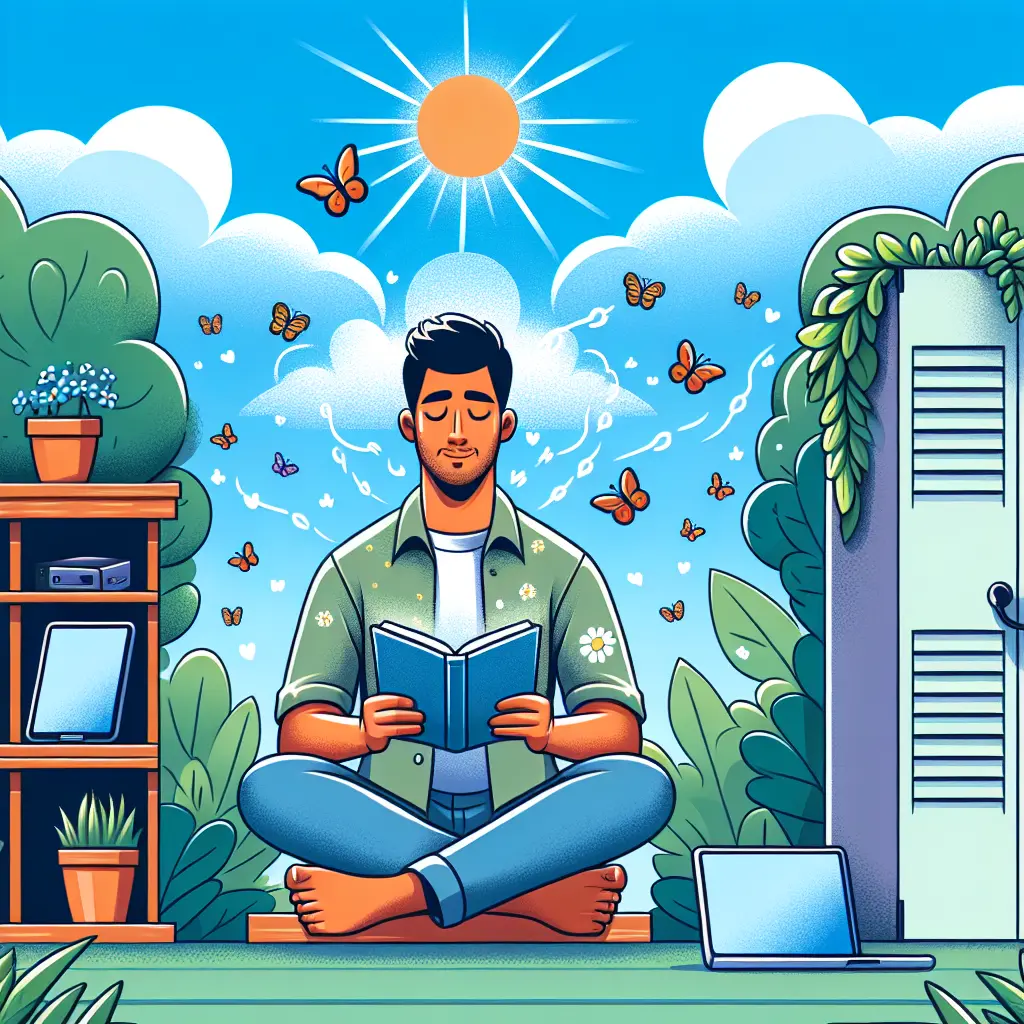
In today's fast-paced, technology-driven world, the concept of a digital detox has become increasingly relevant, offering myriad benefits for mental health improvement. As we find ourselves perpetually tethered to screens, it's essential to explore the advantages of reducing screen time and embracing tech-free periods. Engaging in a digital detox can be a transformative practice, helping to cultivate mental clarity and digital well-being by reducing digital stress.
Understanding the Digital Stress Epidemic
Digital stress is becoming increasingly prevalent, affecting individuals of all ages. According to a Pew Research Center study, nearly 60% of adults reported feeling overwhelmed by digital communication. This constant connectivity contributes to mental fatigue, anxiety, and reduced focus, underscoring the necessity for digital detox strategies. A digital detox offers a respite from these pressures by encouraging individuals to disconnect from technology, allowing for improved focus and mental wellness as the brain resets and recharges.
The Impact on Mental Health: Reducing Anxiety and Stress
Engaging in a digital detox has been shown to alleviate symptoms of anxiety and stress. By prioritizing tech-free time, individuals can cultivate a sense of mental clarity and reduce digital stress. This practice is particularly beneficial for those seeking mental health tips that promote awareness and resilience. A recent report by the American Psychological Association highlighted how digital detoxes can decrease anxiety levels by up to 30%. Embracing these practices supports personal well-being while fostering a culture of mindfulness and intentional living.
Unplugging: A Path to Reconnecting with Oneself
Disconnecting from technology allows individuals to reconnect with themselves and their surroundings. This "disconnecting to reconnect" emphasizes the importance of self-reflection and mental health self-care. The rise of wellness retreats, like those in Ibiza where digital detoxes are prioritized, showcases the growing trend towards embracing tech-free environments (The Guardian). Additionally, wellness farms, as suggested by RFK Jr., represent another unconventional approach to fostering mental clarity and well-being (The New York Times).
The Role of Digital Detox in Enhancing Focus
One of the primary digital detox advantages is improved focus. By reducing screen time, individuals can concentrate better on tasks at hand. This is especially relevant in today's era of TikTok trends and high-priced wellness products, where the pressure to stay constantly connected can be overwhelming (Business Insider). Incorporating technology breaks into daily routines not only enhances concentration but also contributes to overall digital well-being.
Strategies for Incorporating Tech-Free Time
Incorporating tech-free time into one's routine doesn't have to be daunting. Here are some practical strategies:
- Designate Tech-Free Zones: Establish areas in your home where screens are not allowed, such as the dining room or bedroom, promoting face-to-face interactions.
- Schedule Regular Breaks: Allocate specific times during the day for technology breaks. Even short intervals can significantly reduce digital stress.
- Embrace Outdoor Activities: Engage in activities that don't require screens, such as hiking or gardening, to enhance mental wellness.
- Join Wellness Communities: Participate in programs like those offered by Alo's invite-only Beverly Hills fitness studio, where technology breaks are part of the wellness routine (Los Angeles Times).
Case Studies and Real-Life Examples
The benefits of digital detoxes are well-documented through various case studies and personal stories. For instance, transforming a partially constructed building into a vibrant public preschool demonstrates the potential for spaces that promote learning and wellness without the need for screens (Architectural Digest). Personal narratives, such as focusing on work-life balance to cope with grief, highlight how reducing screen time can aid emotional healing (The Atlantic).
Embracing Digital Detox for Anxiety Relief
For those struggling with anxiety, digital detoxes offer a viable solution. By reducing screen time and embracing tech-free periods, individuals can manage anxiety more effectively. The role of AI massage robots in promoting relaxation is an example of how technology can also support these efforts when used mindfully (Forbes).
Embracing Digital Detox for a Healthier Mind
In conclusion, embracing a digital detox offers numerous benefits for mental health. By stepping away from screens, we can foster improved well-being and mindfulness. Here's a quick recap of the key advantages:
- Reduced Anxiety and Stress: Digital detoxes can lower anxiety levels by up to 30%, providing a much-needed mental respite.
- Enhanced Focus: Limiting screen time enhances concentration, leading to more productive workdays and better work-life balance.
- Reconnection with Self: Unplugging allows for deeper self-reflection and mental health self-care.
- Community and Wellness: Participating in tech-free wellness communities fosters a supportive environment for mental clarity.
- Practical Strategies: Implementing tech-free zones, scheduling breaks, and engaging in outdoor activities are effective ways to integrate digital detox into daily life.
The impact of these practices extends beyond individual well-being, nurturing a culture of mindfulness and intentional living. As we navigate an increasingly digital world, recognizing the importance of these breaks is essential for maintaining our mental health.
I encourage you to reflect on your own digital habits and consider how a digital detox might benefit you. Are there specific strategies you'd like to try, or have you already experienced positive changes from reducing screen time? I invite you to share your thoughts and experiences in the comments below—let's continue this important conversation together.
Remember, the journey towards a healthier mind is unique to each individual, and every step you take towards reducing digital stress is a step towards greater mental clarity. Together, we can embrace the art of disconnecting to reconnect.
Author: Vanessa Doyle